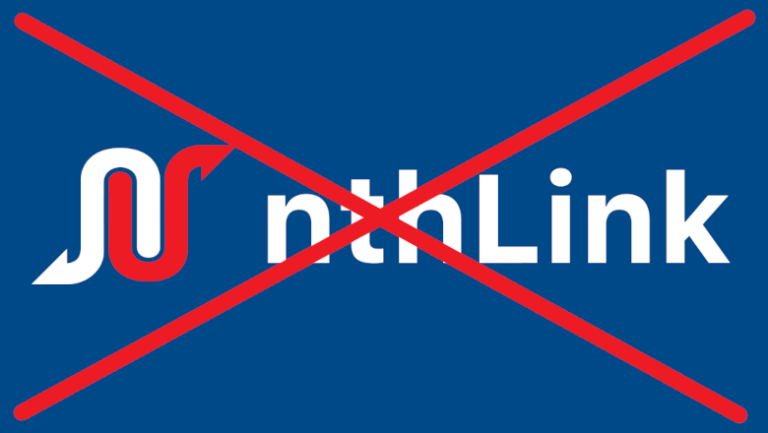From student to teacher: how to understand web development if this is not your profile

Although it may seem to someone that a web developer is a tough techie (an IT specialist!), Entering this profession is no more difficult than entering Python … Former teachers, lawyers, accountants and other humanitarians are often transferred to it. The teacher tells about where to start learning, what mistakes beginners make, how to get used to the profession and whether it is worth studying on their own. web development Alexey Kadochnikov at GeekBrains.

Anyone can become a web developer – the main thing is not to be afraid of a computer and have a desire to try yourself in the profession. This profession at the entrance does not require deep technical knowledge: mathematics or algorithms are more a bonus than a necessity. I did not notice a fundamental difference between how techies and humanities are trained, just the first have a little more knowledge at the start. But this difference disappears in a matter of days, the main thing is to overcome laziness and get down to business.
To master the profession, it is important to practice every day for at least one to two hours. Alas, not everyone understands this, some people think: to become a developer, you just need to listen to a couple of lectures. But this is not the case.
Never put off training until tomorrow: set an alarm, for example, at eight in the evening. Most people by this time have time to free themselves from work, get home and even have dinner. Rings – sit down and practice until nine or ten. And so every day. Have you missed it? Add the missed hour to tomorrow’s class.
Of course, 8 pm is not a panacea. The main thing is to optimize the schedule in order to effectively combine training and work. When I was retraining as a developer (I’ll talk about this further), I set the alarm for six in the morning, studied, had breakfast and drove to work.
Who is being retrained as a developer
People who are about 30 years old often decide to change their profession to a developer – they have already graduated from the university, worked in their field, but they did not like it. There can be many reasons to change specialty – low salaries, uninteresting tasks, lack of opportunities for development. A person may simply want to do something different, more profitable and comfortable. Among my students there are lawyers, builders, doctors, economists, teachers, engineers and many others.
It is easier for adults to learn than children: they are not motivated, they come to learning as consciously as possible, and sometimes they complete tasks faster than already accomplished specialists at work.
I myself had to change my specialty. Eight years ago, when I graduated from the university, it turned out that there are only 8 vacancies on the market in the specialty “Computing machines, complexes, systems and networks”. For four of them I lacked experience, and for four more I did not get a call back. As a result, I got a job as an engineer at a factory and after a few months of work I realized that this is not what I want to devote my life to. Then I took web development courses from scratch and found a job after graduation. Now I am a Front-end developer at Mail.ru Group and teach at GeekBrains.
Another example is my student Pavel Litvin. He did not finish his studies at the university as a security worker, worked as a sales manager, then in SEO, in the end he learned front-end development and began to earn money in 4 times more than before the courses. And there are many such stories.
The concept of a profession for beginners is often far from reality. Some people still think that a programmer is someone who sits at home, does nothing and earns a lot. When I come across this with students, I have to explain what exactly they will need to do, how much time to study and how they will then have to work.
To understand if a specialty is right for you, you just have to try. Online schools that teach development have free intensives for a few hours. During this time, students are invited to make a small project: this way you can understand whether this area is suitable for them. If you’ve tried a couple of these intensives and nothing works or you don’t like the process, perhaps this is not your calling and it is worth continuing your search. The profession of a web developer suits many, but it is not a universal recipe. Surely you will find something different for yourself.
In addition to intensive courses, there are introductory webinars about what to expect from the specialty, how much it is in demand, what salaries it has, what needs to be done at work. The Internet is full of similar videos and texts, it is easy to find them. Take a look to see what you will be doing if you choose this path.
Selfeducation
In principle, you can try to master the profession yourself – there is enough material on the net. But sooner or later a moment comes when the code does not work, the program does not start and it is not clear what to do next. You run into a dead end and cannot get out of it, because there is no one to tell you. The teacher helps to avoid this problem. He will talk about the most effective technologies and solutions, share his experience – this is a big plus for employment. With these tips, you can complete the same project in half the time.
At the moment when I went to the courses, my friend decided to study on his own – for three years he read something, looked on the Internet. As a result, during this time he went to a salary of 50,000 rubles. Had he attended the courses, he would have achieved this result in six months or a year. Thinking he was saving, he lost money.
Another common challenge for self-taught web development from scratch is mastering outdated technologies. I had to retrain students who learned irrelevant information. There are things that no longer apply, have been optimized and need to be removed from memory or reconfigured. For example, earlier in the layout to move an element, the command was used float left, but this is a rather cumbersome and complex solution. Then they started using display: flex… Now this method has become outdated and is now relevant. display: grid… The appearance from all these methods will be the same, but the last solution is more elegant and faster to implement.
Probably the biggest misconception in self-mastering a profession is the lack of an idea of how technologies are related to each other and can work in conjunction. Without a curriculum, all knowledge is chaotic. It is also highly likely that after self-study you will not have a portfolio (it will be in the courses) and a clear understanding of the paths of development in the profession (in order to develop it, you need to communicate with those who understand this).
I recommend everyone who is learning development to watch review webinars and intensives, where they tell how one project brings several technologies together. The benefit here is not so much in the technology itself as in creating a holistic picture of how and what works together.
After listening to theory, you often have no idea how to use it. To master development, you can use online simulators like of this… Such things offer a minimum of theory and maximum application.

To stay motivated when I do something new, I use this technique: I record a video in which I voice the goals and motives of the current tasks. If, after the conditional three months, there comes a moment when I give up, I look through it. If you don’t like the video idea, try writing an inspiring letter.
Higher education and courses
I got a job many times, moved between cities and even the CIS countries. For all the time I was asked about a diploma of higher education only twice. Therefore, I would not say that this gives any advantage over other applicants. Interviews test technical knowledge. If they are not there, no diploma will save you.
The courses are usually attended by people who want to get a job after them in their specialty. Therefore, knowledge there usually gives the profile needed for work. This is their difference from universities, where some of what has been learned then has nowhere to apply. At Geekbrains, where I trained as a web developer and now teach, they only learn the technologies needed to get the job done. When we were just creating the course, we conducted a survey of the school’s web developers, learned from them what is relevant and what is not, which technologies are important to include in the program, and which ones can be dispensed with.
To study effectively on courses, you need to watch webinars, complete practical assignments and (at least) read the first links on Google or Yandex on the topic of the lesson: this helps to slightly expand the understanding of what has been covered.
It is not worth reading textbooks before starting training: they become outdated very quickly. It takes more than one month from the moment a book is written until it hits the shelves. It needs to be edited, imposed, printed, released to the market. It is better to read the official documentation of the chosen language or technology before (or at the same time) studying. For example, here website, on which the maximum information is collected for starting in JavaScript.
We have assignments in our courses for teamwork with several developers. We try to make the program as adaptive as possible. Everyone who has completed the course can write about him and his teacherreview… What graduates send in is not moderated and is always reviewed by the quality department. If its specialists see problems in any subject, they send a request to update the course.
There are many training options – you can learn in June, or you can go straight to middle. You can be a front-end, back-end, or master both technologies and become a full-stack specialist. The difference is in the technologies mastered:
Junior-frontend needs to know html + css + js + react.
Junior-fullstack: html + css + js + php + databases.
Middle frontend developer: html + css + js + react + vue + node.js + team development.
Middle-fullstack: html + css + js + react + php + laravel + databases + team development.
Web development training in our courses lasts from 5 months. During this time, you can get the junior frontend base. It will take a year to learn the technologies needed for a middle front-end. Mastering middle skills for both the front-end and the back-end takes 1.5 years. And then you need to go into battle and gain experience in order to confirm this status in real work.
I teach front-end development. The peculiarity of the course is in the constant demonstration of the practical component, in each lesson I show how to apply what I have learned. We give applied knowledge, and all homework is related to each other. From 1 to 8 lessons, students gradually develop a finished project, and in the end they manage to make a five-page project of an online store. For example, this one:

How to get a job and what to expect from it
General knowledge of web development is required to work. Even if you studied the frontend, you will have to show that you own the backend during the interview. For example, they ask about PHP, and if you don’t know it, they ask if they’re ready to learn it.
The holistic knowledge gained in the courses makes it possible to quickly learn new things. If you already know how to do something in one language, you can do it in another. It’s like learning to drive: it doesn’t matter what car you start driving – changing to another, you will still quickly adapt and go.
Juna at her first job can count on 40-60 thousand, middle earns from 100-150 thousand. In fact, the salary can be 200-250 thousand, but in order for the knowledge to be enough for a middle salary, you need to study diligently for at least six months or a year.
With general knowledge and understanding of basic technologies, finding your first job will not be difficult – you need perseverance, work and self-confidence. The market is hungry, but do not rush to choose. Go through a dozen interviews: this way you will understand what is on the market and decide on what is right for you.
The most common mistake in interviews is to say too much. In development, you can’t run out of chatter: you need to answer confidently and to the point. If somewhere you are not sure or do not know, it is worth showing the logic of actions in such a situation, but not inventing anything and not talking to the interviewer. Web development is all about teamwork. Therefore, it is important to show that you are good at working with others and have relevant experience. We have assignments in our courses for teamwork with several developers.
During the interviews, you will most likely be asked questions about the JavaScript base, the console. They will definitely give test tasks – for example, a page from which something needs to be done. They will ask a bunch of technologies to see if you have a holistic understanding.
It’s not scary if the interview suddenly fails – look at home for answers to questions, solve problems, google typical tasks in your specialty and go to the next meeting.
It must be remembered that at work (often) no one will teach anyone anything. The developer is given a specific task and asked to do it. I think that if there is a desire to quickly develop in the profession, it is better to choose a place where there are many employees and there is a senior mentor. Working alone is very difficult to develop.





